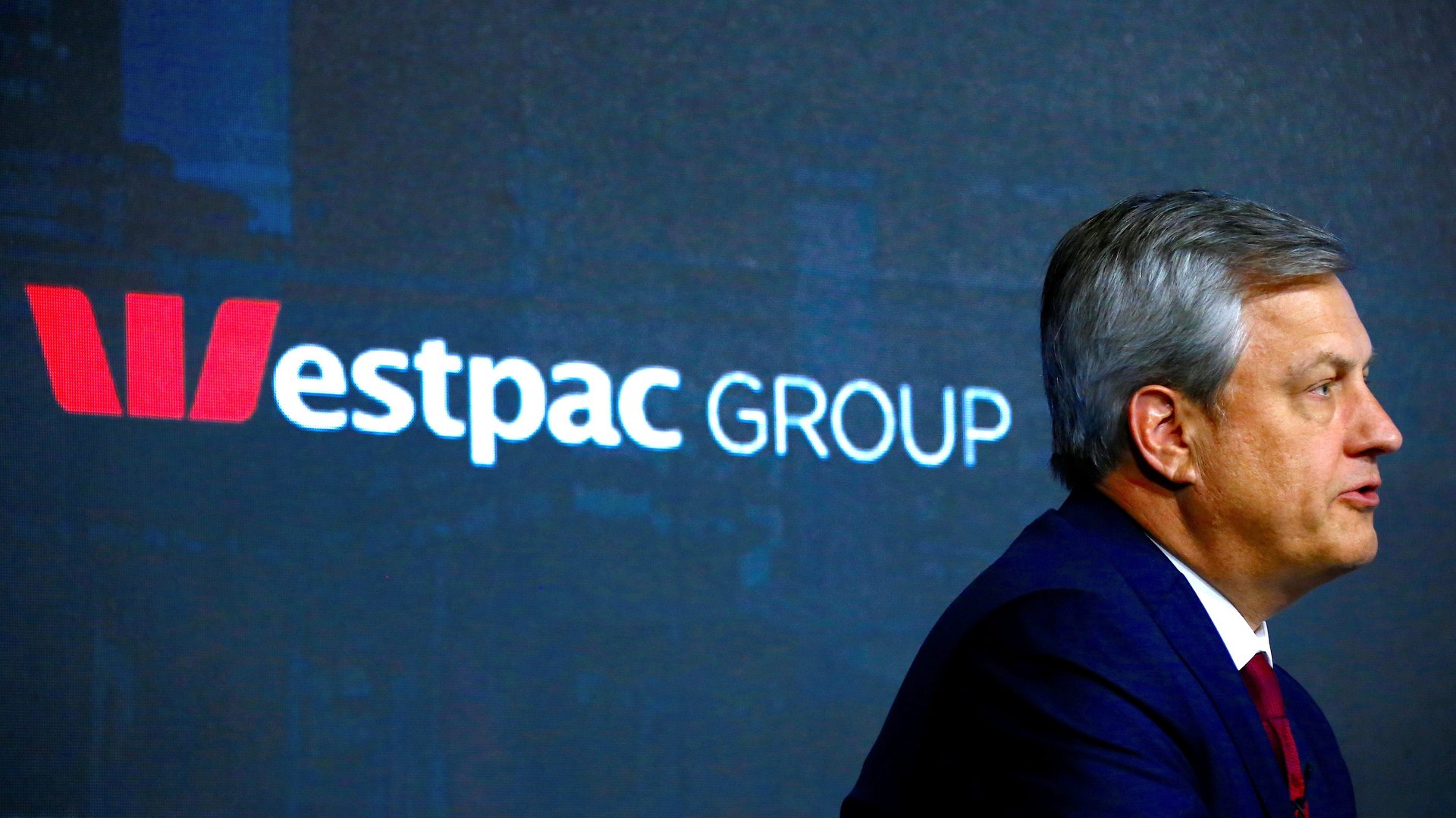Top Australian bank faces record fine for 23 million violations and enabling pedophilia
Australia’s second biggest bank is reeling after a lawsuit by the country’s financial intelligence unit accused it of 23 million breaches of an anti-money-laundering and terrorist-financing law and “indifference” toward pedophiles using its services.


Australia’s second biggest bank is reeling after a lawsuit by the country’s financial intelligence unit accused it of 23 million breaches of an anti-money-laundering and terrorist-financing law and “indifference” toward pedophiles using its services.
In a statement today (Nov. 24), Westpac’s chairman Lindsay Maxted said the bank (pdf) felt “deep sorrow,” promising to either cut or cancel short-term bonuses for executives and close the system through which many of the payments were made. He will have to sell that response to shareholders tomorrow, as commentators call for rolling heads (paywall) and Australian treasurer Josh Frydenberg insists “there must be accountability.”
Austrac, the financial intelligence agency, said last week it first warned Westpac about suspicious payments to accounts in the Philippines in 2013, and again in 2015 and 2016. Since that time, one customer alone made 625 payments worth around $92,000 to someone who was providing “live streaming of child sex shows and offering children for sex,” according to Austrac.
In total, the bank failed to flag transactions worth more than $7.5 billion that may have broken Australia’s rules against money laundering and terrorist financing, Austrac said. Many of the transactions were made through its “LitePay” system for international transfers, which it marketed as a cheaper and faster version of Swift, the international payment tool used by most banks. Westpac set up a system to flag suspect payments in 2016, but the mechanism didn’t work at all until 2018. Westpac was still committing violations as late as June 2019, according to Austrac (pdf, p.4).
Frydenberg, Australia’s equivalent of a finance minister, stopped short of calling for resignations, but suggested top executives and board members may have to go in his push for accountability. “That will obviously involve decisions that they take about senior management, as well as the board,” he said on ABC television. “History shows us that these issues build a momentum of their own. Where boards start is not necessarily where boards finish.”
Last year, the bank got away with a $2.2 million fine for trying to rig an Australian market pricing rate. But the punishment could be enormous this time: Each of the alleged violations could face a penalty worth $11.5 million to $14 million. Austrac’s current record fine was issued against Commonwealth Bank for A$700 million (around $425 million). But its number of violations was less than 2% of Westpac’s 23 million total.
Westpac said it will tackle the problem by improving its data sharing across the industry and adding 200 people to the 750 who currently work internally on financial crime. It will also invest a total of $23 million (A$34 million) in anti-child abuse programs.
Australian child protection group Bravehearts has announced it will stop banking with Westpac over the scandal. “Child sexual assault and exploitation happens in the darkest of corners and Westpac had an opportunity to shine a light on it. Instead they showed an unbelievable and inhumane disinterest,” the group’s founder Hetty Johnston told ABC. Overall, Austrac found 12 customers who together had sent more than 3,000 payments worth around $340,000 to child abusers in the Philippines and elsewhere in Southeast Asia.